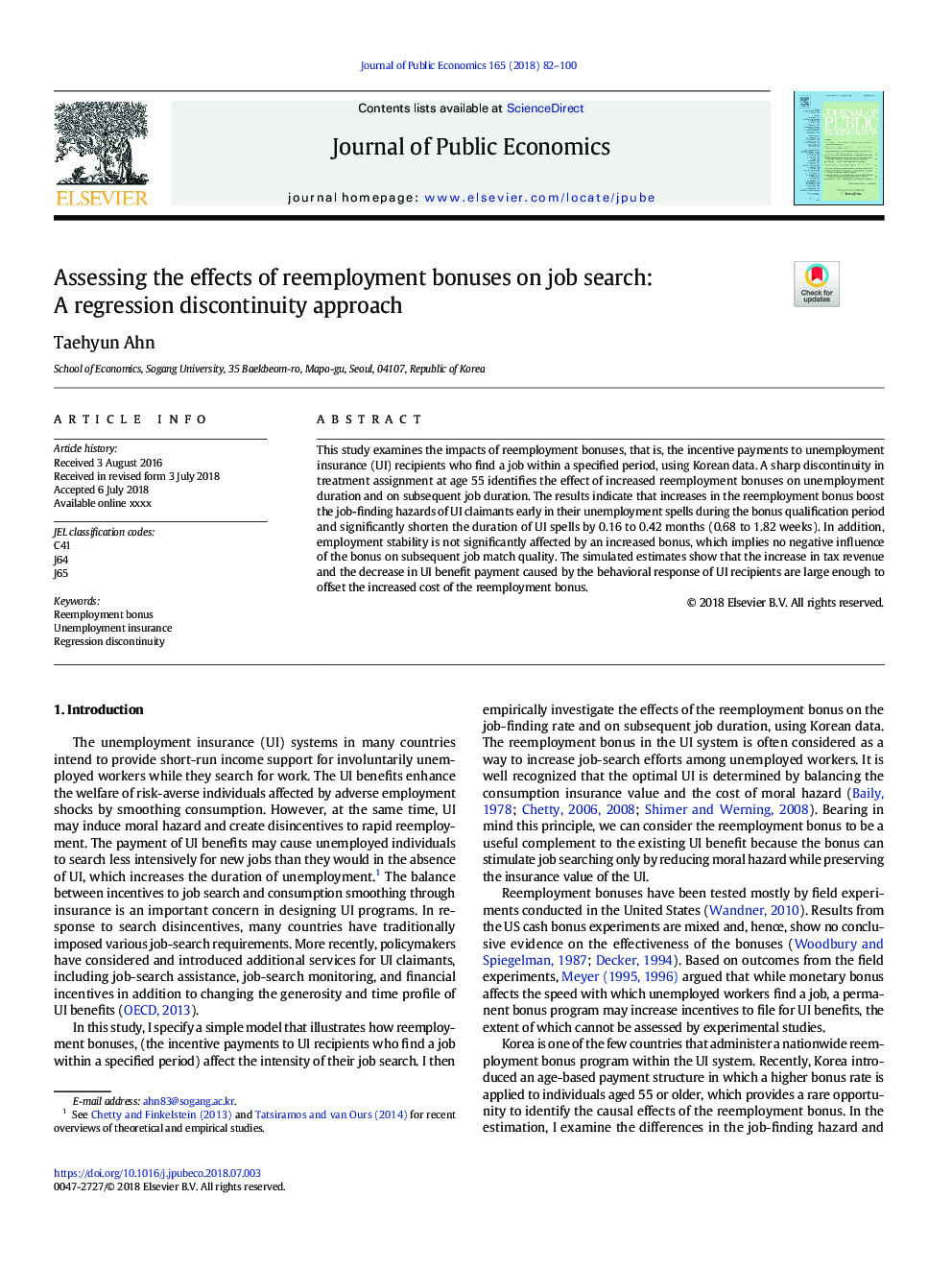| Article ID | Journal | Published Year | Pages | File Type |
|---|---|---|---|---|
| 7369265 | Journal of Public Economics | 2018 | 19 Pages |
Abstract
This study examines the impacts of reemployment bonuses, that is, the incentive payments to unemployment insurance (UI) recipients who find a job within a specified period, using Korean data. A sharp discontinuity in treatment assignment at age 55 identifies the effect of increased reemployment bonuses on unemployment duration and on subsequent job duration. The results indicate that increases in the reemployment bonus boost the job-finding hazards of UI claimants early in their unemployment spells during the bonus qualification period and significantly shorten the duration of UI spells by 0.16 to 0.42â¯months (0.68 to 1.82â¯weeks). In addition, employment stability is not significantly affected by an increased bonus, which implies no negative influence of the bonus on subsequent job match quality. The simulated estimates show that the increase in tax revenue and the decrease in UI benefit payment caused by the behavioral response of UI recipients are large enough to offset the increased cost of the reemployment bonus.
Related Topics
Social Sciences and Humanities
Economics, Econometrics and Finance
Economics and Econometrics
Authors
Taehyun Ahn,
